Losing a loved one already brings enough emotional weight without the added pressure of sorting through decades of belongings. Estate cleanouts can feel overwhelming when you’re already grieving, but with the right approach, you can transform this challenging task into a manageable process that honors your loved one’s memory.
Knowing how to plan a stress-free estate cleanout starts with understanding that you don’t have to handle everything alone or all at once. This process requires patience, organization, and often the help of professionals who specialize in estate cleanouts.
Start With Emotional Preparation
Before you touch a single item, permit yourself to feel whatever emotions arise. Estate cleanouts aren’t just about removing belongings; they’re about processing memories and saying goodbye to cherished possessions. Set realistic expectations for yourself. You won’t be able to complete everything in one weekend, and that’s perfectly normal. Most estate cleanouts take several weeks or even months, depending on the size of the home and the amount of belongings.
Consider having a trusted friend or family member accompany you during the first few visits. Having support makes the emotional aspects more bearable and provides an extra set of hands for heavy lifting.
Create a Timeline That Works for You
Rushing through an estate cleanout often leads to regret and missed opportunities to preserve meaningful items. Start by determining any hard deadlines you might face, such as when the house needs to be sold or when utilities will be disconnected. Work backward from these deadlines to create a realistic schedule. Factor in time for sorting, donating, selling valuable items, and arranging for disposal of remaining belongings.
Most people find that dedicating one or two days per week to the cleanout process works better than trying to complete everything in one marathon session. This approach prevents burnout and gives you time to process emotions between sessions.

Sort Items Into Clear Categories
Organizing becomes your best friend during an estate cleanout. Create distinct categories that will help you make decisions quickly and efficiently. Set up areas for “keep,” “donate,” “sell,” “trash,” and “undecided” items. The “undecided” category proves particularly valuable for items that carry emotional weight but don’t have obvious practical value.
Start with easier rooms, such as bathrooms or laundry rooms, before tackling emotionally charged spaces like bedrooms or home offices. This approach helps you build momentum and develop a rhythm for decision-making. Handle each item only once if possible. Pick it up, decide which category it belongs in, and place it there immediately. Going back and forth over the same items wastes time and emotional energy.
Identify Items of Value Early
Some belongings might have significant financial or sentimental value that you haven’t yet considered. Take time to research items that could be worth more than their apparent value. Antiques, collectibles, jewelry, and artwork often surprise families with their worth. Consider hiring a professional appraiser for items you suspect may be valuable, especially if you plan to sell them.
Don’t overlook seemingly ordinary items that might have collector value. Vintage clothing, old tools, records, and books can sometimes fetch good prices at auction or through online sales. Photography becomes crucial during this stage. Document items you’re unsure about so you can research them later without holding up the sorting process.
Handle Important Documents and Personal Papers
Paper sorting often takes longer than expected, but it can’t be rushed. Look for financial documents, insurance policies, wills, tax records, and other legal papers that might need attention. Create a separate area specifically for paperwork and plan dedicated time for this task. You’ll likely need to review documents carefully rather than making quick decisions about them.
Consider digitizing important family photos and documents before disposing of physical copies. This preserves memories while reducing the volume of items you need to store or transport. Shred documents containing personal information before disposing of them. Keep in mind that identity theft remains a concern even after someone passes away.

Plan for Donations and Disposal
Research local charities and donation centers before you begin sorting. Different organizations accept different types of items, and knowing your options in advance streamlines the process. Schedule donation pickups in advance, especially for large items like furniture. Most charitable organizations require several days’ notice for pickup services.
For items that can’t be donated, research disposal options in your area. Some items, like electronics, paint, or chemicals, require special disposal methods that regular trash services won’t handle. Consider hosting an estate sale for valuable items that you don’t want to keep. Professional estate sale companies can handle the entire process, from pricing items to managing the sale itself.
Estate Cleanout With Professional Help
You don’t have to handle everything on your own. Professional estate cleanout services can handle the heavy lifting, disposal, and even sales of valuable items. These professionals understand the emotional nature of estate cleanouts and can work at your pace, allowing you to focus on the items that matter most to you.
They also have connections with donation centers, auction houses, and disposal facilities that can save you a significant amount of time. Additionally, estate cleanout specialists understand the difference between trash and treasure and will treat your loved one’s belongings with respect.
Are you searching for a reliable and helpful dumpster rental in Albany, New York? Look no further than CR Dumpstars. We understand that managing an estate cleanout can be a challenging and emotional process. That’s why we offer dependable and respectful services to assist you every step of the way. Our team is committed to providing efficient solutions for your waste removal needs, ensuring clarity and support during difficult times.
Take Care of Yourself Throughout the Process
Estate cleanouts take a physical and emotional toll. Stay hydrated, take regular breaks, and don’t push yourself beyond your limits. Bring snacks and comfortable shoes for long sorting sessions. The physical demands of lifting, moving, and organizing belongings can be more taxing than you expect.
Consider working in shorter sessions more frequently rather than trying to power through long days. This approach helps prevent both physical exhaustion and emotional overwhelm.
Moving Forward With Peace of Mind
The goal isn’t perfection—it’s progress. You’re handling one of life’s most challenging tasks while dealing with grief, and that deserves recognition. Knowing how to plan a stress-free estate cleanout not only prepares you but also makes it easier to process this difficult time. Remember that you can’t save everything, and that’s okay. The memories you carry forward matter more than the physical items themselves.
Once you’ve completed the cleanout, take time to appreciate what you’ve accomplished. You’ve honored your loved one’s life while creating space for your own healing and moving forward. An estate cleanout marks both the end and the beginning. With proper planning and the right support, you can navigate this process with dignity and find peace in knowing you’ve handled your loved one’s belongings with care and respect.


Leave a Reply